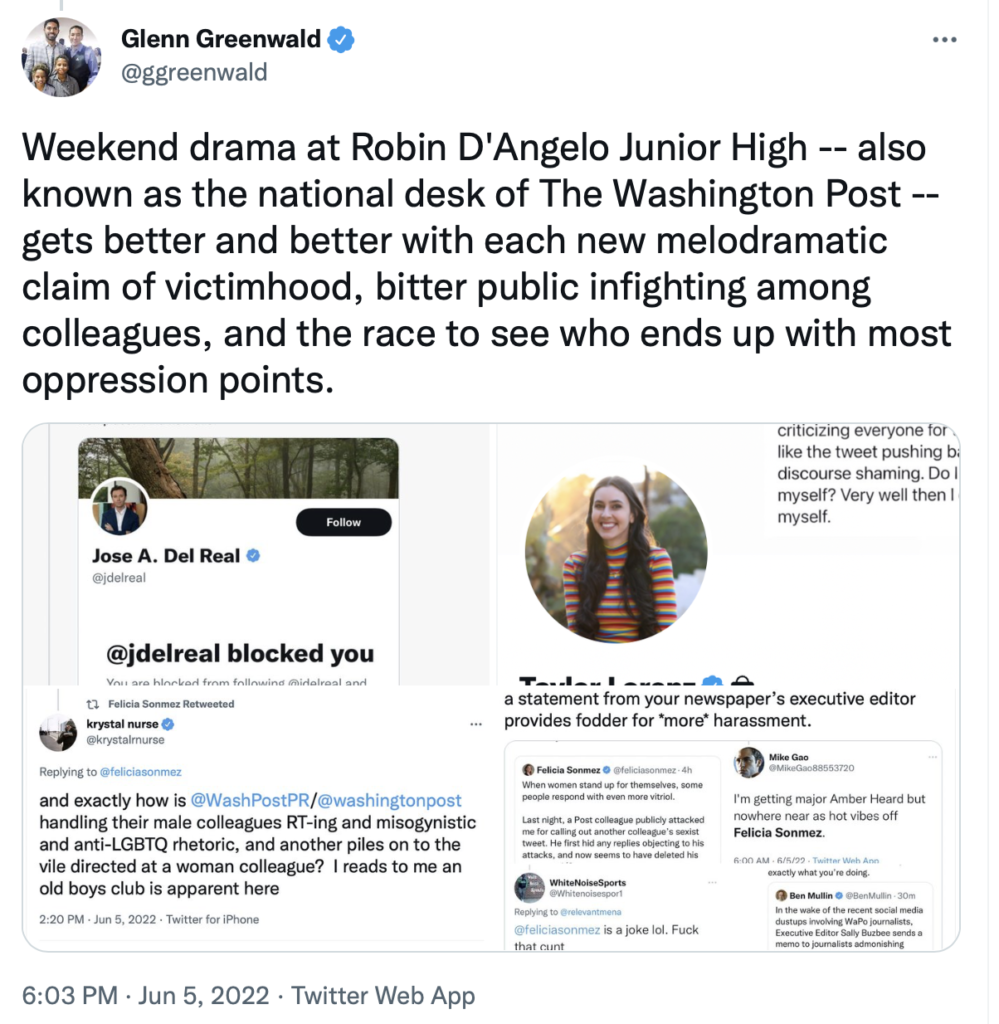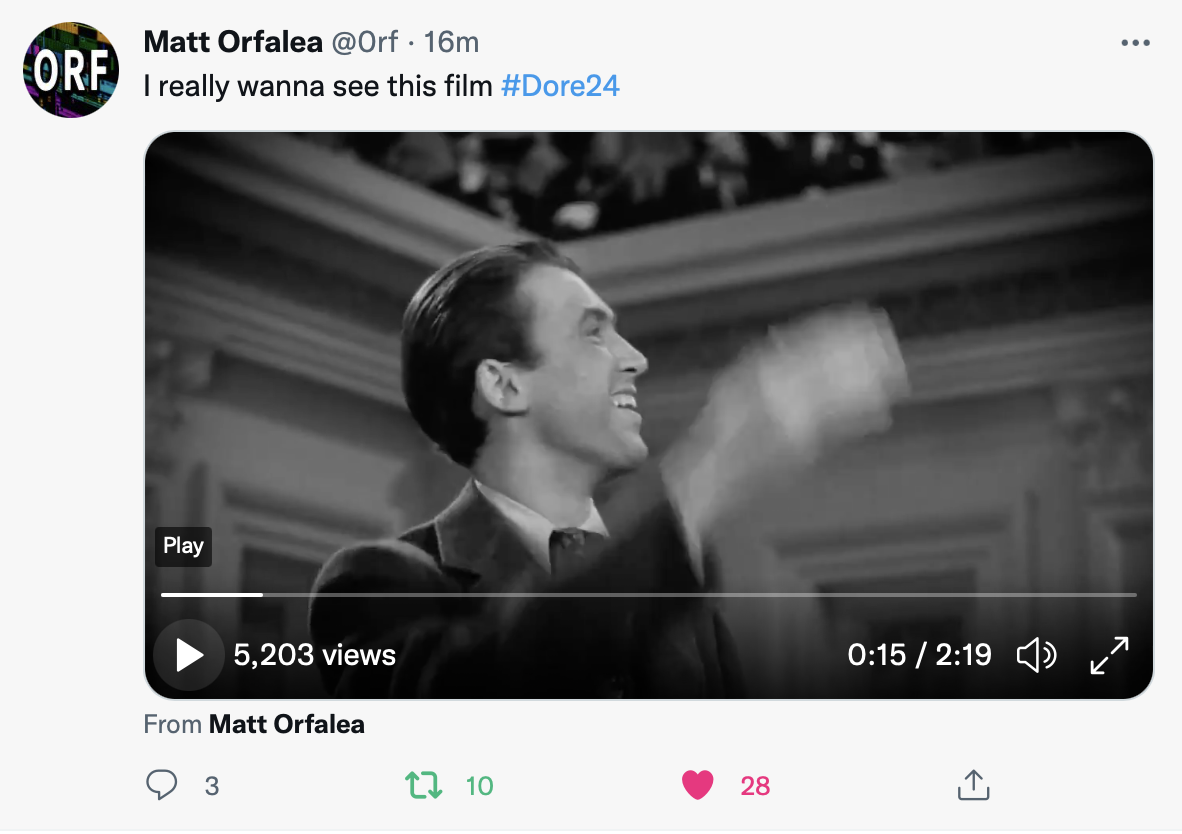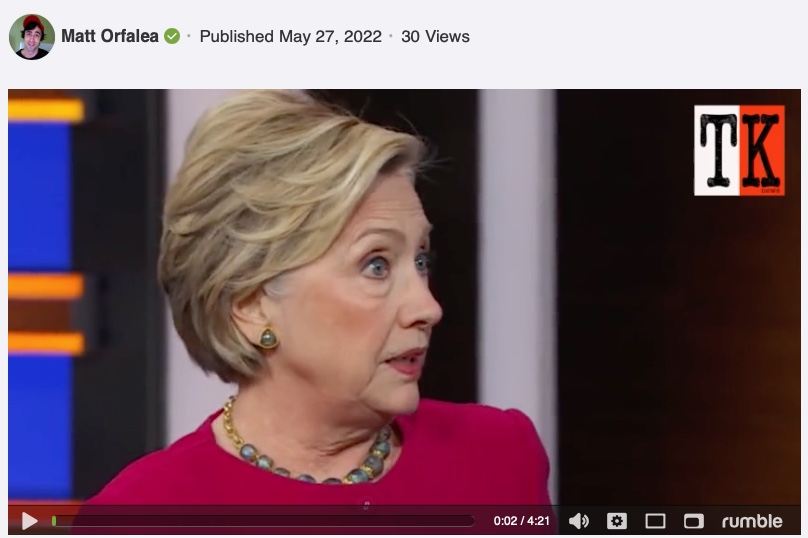Meanwhile . . . Inside the Washington Post
An eye-opening peek behind the curtain featuring those reporting the "national news" at the Washington Post. No investigation was necessary here--these "reporters" and editors are vigorously self-airing their insider commentary of this oppression-olympics for all to see. All of this commotion was launched as the result of the most recent lies by "reporter" Taylor Lorenz and then follow-up lies and subterfuge by WP editors in their attempts to paper over Lorenz' lies.



